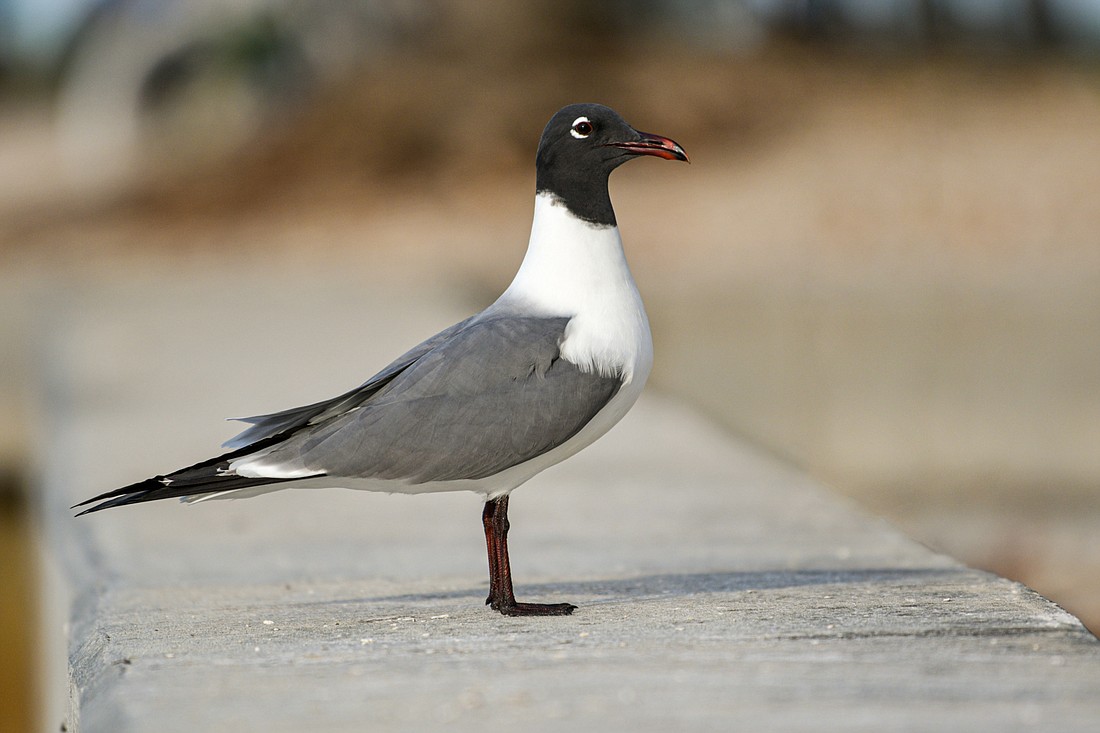- February 5, 2026
-
-
Loading

Loading

Commonly seen, and often heard, laughing gulls are named for their raucous, laugh-like calls. Of the nine gull species found in Florida, only laughing gulls breed here, and many are year-long residents. These web-footed coastal birds nest in large colonies, on the grounds of coastal islands free of human disturbance and terrestrial predators (such as raccoons and cats).
Adult laughing gulls sport two different looks, depending on the time of year. In breeding season, their head is black, and their bill reddish. In non-breeding season, their head turns mostly gray, and their bill black. Young gulls are more subtly patterned.
Laughing gulls are opportunistic feeders and their diet is varied. Along the coast they eat small fish and crustaceans. You'll also spot them stealing food from other birds, even boldly landing on brown pelicans' heads to do so! Inland, they eat earthworms, snails, garbage and flying insects.
When foraging for flying insects, gulls exhibit a behavior called "hawking," meaning they take their prey on the wing (while flying). This feeding behavior, unfortunately, has popularized the human custom of tossing bread (or other food) into the air to attract gulls, often just to create a photo opportunity.
Feeding birds human food fills them up with nutritionally deficient calories, and can also potentially harm them. And, encouraging gulls to approach humans, and depend upon us for food, can cause them to become a nuisance or threat, which, in turn, threatens the birds. By not feeding gulls, and properly disposing of food waste, we can discourage their presence on our beaches in large numbers. This, in turn, reduces the potential of gulls preying on endangered shore birds eggs and nestlings.
Save our Seabirds is a non-profit organization whose mission is to rescue and rehabilitate sick and injured birds, releasing as many as they can, while educating our community about avoiding injuries and preserving habitats.